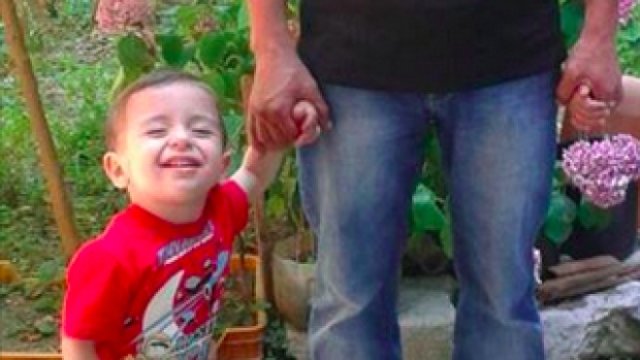
Sometimes the fate of a child is written 100 years before they are born. Some will view this as a reductionist approach or fatalistic, but here we are not talking of a divine fate, we are talking of historical forces, politics, power, hegemony, economic exploitation and colonialism.
The world looks on aghast at the image of three-year-old Alan (“Alyan” in the Turkish spelling) Kurdi, washed up on the shores of the Mediterranean, just miles away from the ancient theatre where the greatest Greek tragedies were played out millennia ago. This is a modern day tragedy, a journey that could rival anything written by Homer or Aeschylus, except that there are no heroes or heroines in this play.
The gods watch on from the heavens, unmoved and mighty, while the chorus has grown tired of reciting the same tale.
Millions of people have been displaced, hundreds and thousands of children killed in the wars perpetrated by regional despots, imperialists and the global finance capitalist system they swear by. Think of Iraq, Egypt, Libya, Syria and finally Kurdistan in the past few years. Alan Kurdi is just a number, a symbolic number now, because of a powerful image and a narrative that has been created around it.
Now he symbolises the millions of children who have been destroyed in these wars, but what does that change? If wars continue in the “Middle East”, if exploitation, repression, torture and coercion continue, what will a few European countries accepting refugees change? Something maybe, but not much.
The fate of Alan Kurdi, a fitting surname for a boy who might have grown up to be a hero, was written a hundred years ago, when the Kurdish nation was left without official recognition or status and divided between four nation-states: Turkey, Iran, Iraq and Syria. Since then they have been victims of genocide, massacre, exile and torture.
Denied their language, culture, history and identity, they have been enslaved. To describe this in words will not suffice, because these words are now generic. Only in the body of Alan Kurdi will you be able to see the suffering of the Kurds.
But did having a state and recognition change the fate of the Arab children of Iraq, or the African children of Libya, or the Syrian children who have died in their thousands in the last few years?
No. The nation-state system imposed by imperialist powers following the World War I was alien to the region, was alien to the dozens of civilisations, cultures, ethnicities, belief systems and religions. This alienation has enslaved the people, made them enemies along religious and ethnic lines, and manageable pawns for those who wish to exploit them.
The absolutist mindset, a product of European capitalist modernity, which placed the nation-state, capitalist economy and industrialism above all else has come to an impasse, and is fighting its biggest battle in the region.
The “Middle East” is changing. Borders, mindsets, demographics are in flux. There is chaos, a potential for change, whether positive or negative.
The outcome will be determined by the quality of struggle waged against regional and global reactionary forces, against ISIS and those like it, against the multinational companies wanting to expropriate the natural resources and land of the people, and against imperialist governments who continue trying to suck the blood of the most fertile lands in the world.
Let no one fool themselves. This is a matter of politics, of economy, of ideology and of civilisation. We can only be human if we have a humane system, humane structures and humane ideas.
Just like it was not a coincidence that ISIS set its sights on Kurdistan as the land for its caliphate, it is not a coincidence that the lifeless body of a Kurdish baby should symbolise the state of the world in this decade.
Kurdistan is now the womb from where a new civilisation has the opportunity to grow. The Kurds have termed this "democratic modernity" and pitted it against "capitalist modernity".
Baby Alan and countless others like him are the unfortunate victims of this historical battle. Their death certificates were signed a hundred years ago by the Gods of War.
[Abridged from Kurdish Question.]
Like the article? Subscribe to Green Left now! You can also like us on Facebook and follow us on Twitter.